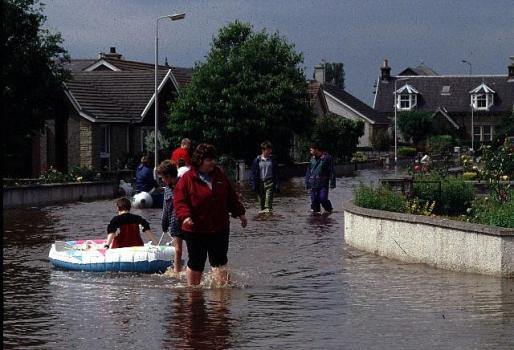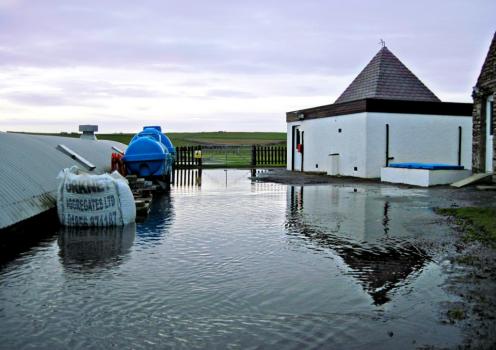Research Funding cycle: 2016-21
Items of work carried out under the 2016-21 funding cycle
Evaluating CREW Year 2: Full Report
The Evaluating Science Policy Practice Interface (ESPPI) Project aims to assess how far CREW is meeting its original three objectives, and to make recommendations to the CREW Facilitation Team (CFT) and the CREW Steering Group (CSG) for future improvements. This report is based on the views of people involved in CREW (researchers from the James Hutton Institute and the university sector, and policy / practice customers in the Scottish Government, SEPA and Scottish Water).
Assessing impact of research on policy: a literature review
This review provides insights into how to evaluate the impact made by knowledge created by CREW activities and whether such impact leads to improved environmental, social and economic outcomes via evidence-based water management. It is widely recognised that impact is more likely to occur when research is co-constructed with research users and is designed with a specific context and use in mind. Knowledge needs to be produced via engagement of researchers and policy makers throughout the policy and research processes, and the outputs communicated in the right way, at the right time, to the right people to produce outcomes which may have an impact. Dissemination of research is not in itself sufficient to have impact.
Evaluating Knowledge Exchange; A Review
This review brings together literature relevant to evaluating projects and programmes that aim to enhance knowledge exchange (KE) between researchers, policy makers and other stakeholders (i.e. anyone with a ‘stake’ in a process or problem). The review aids the development of evaluation procedures to understand the effectiveness of KE projects implemented by CREW.
This review aims to provide recommendations for what needs to be considered in the design of evaluations. It is not meant to provide a step-by-step guide. The context for which this review has been conducted is environmental management and its relationship to and between the knowledge held by researchers, practitioners and policy makers. However, given the limited research on evaluating KE in environmental fields, the review draws on research from a wide range of other fields including business, management, health and education.
Evaluating CREW Review of Good Practice

This review of good practice in evaluating science-policy-practice knowledge exchange was carried out at the start of the project to inform the approach of ESPPI-CREW in year 1 of CREW operation.
Evaluating CREW Year 1 Reports

Scotland’s centre of expertise connecting water research and policy (CREW) delivers objective and robust research and professional opinion to support the development and implementation of water policy in Scotland. Although the importance of demand-driven science to support policy and practice is increasingly recognised, it is not easy to ensure that information is communicated effectively, to the appropriate end-users, in a suitable format, and at the best time to impact on policy or practice. There has been little evaluation of what makes for ‘good’ knowledge exchange that improves interaction, and no agreed methodology for evaluating these practices.
To what extent could water quality be improved by reducing the phosphorous content in animal feed?

The latest River Basin Management Plan (RBMP; Scottish Government, 2015) states that 16% of waterbodies are below good status for water quality, and 246 waterbodies face rural diffuse pressures. Rural diffuse pollution has been identified as the number one water quality issue. Previous water quality monitoring data in Scotland found 7% of water bodies were failing to reach good status for phosphorus (Scottish Government, 2009), although this is based on phosphorus standards which have since been revised. Agriculture contributes a significant proportion of the phosphorus loss. Controlling this loss is an important approach to improving water quality in Scotland.

While flood risk management (FRM) policy in Scotland requires the consideration of natural flood management (NFM), many landowners do not yet support their implementation. Since many measures to support NFM can only be carried out with the support and participation of land-managers, it is particularly important to understand the perceptions of these stakeholders.




